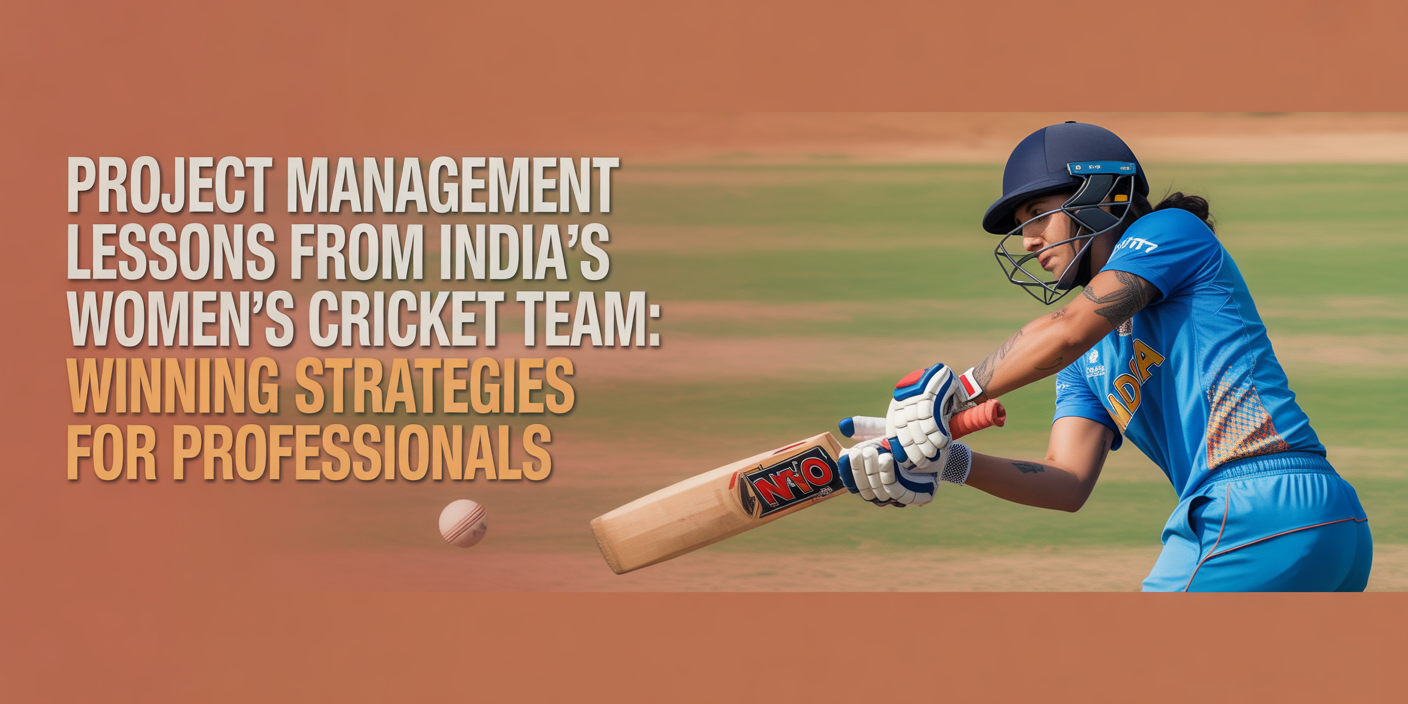Introduction:
Project management lessons from India’s women’s cricket team have captured the attention of professionals across the country after their historic World Cup victory on November 2, 2025. Their path from preparation to celebration sets a benchmark for how strategic leadership, stakeholder alignment, and continuous learning drive high-performance outcomes. In this detailed blog, we explore how these lessons apply directly to project managers and teams aiming for excellence.
1. Shared Vision and Stakeholder Alignment
From the outset, India’s women’s cricket team operated with a single strategic objective: lifting the World Cup. Captain Harmanpreet Kaur and coaching staff effectively aligned each player and support team around this common vision, much like successful project leaders organize their teams around project goals.
For deeper insights on stakeholder alignment in project success, visit our Infocareer stakeholder blog.
2. Adaptive and Inspirational Leadership
Throughout the tournament, leadership was tested—injuries, tough competition, and high-pressure moments required dynamic approaches. Harmanpreet’s ability to inspire, empower, and adjust strategies exemplifies adaptive leadership. In project management, leaders who listen, motivate, and pivot as conditions change create teams that thrive under uncertainty.
3. Role Clarity and Collaboration
Every player, whether a star performer or supportive teammate, knew their role and responsibility. The team’s success depended on not just individual brilliance but on seamless collaboration and accountability. High-performing project teams also rely on precise role definition, robust communication channels, and a shared commitment to success.
4. Rigorous Preparation and Risk Management
Behind every big win is intense preparation. India’s women’s cricket team studied opponents, built contingency plans, and adapted game strategies dynamically. Similarly, project managers must plan for risks, model scenarios, and be proactive—reducing surprises and boosting success rates.
5. Excellence in Execution and Innovation
The final match against South Africa showcased the importance of disciplined execution under pressure. When stakes are high, project managers must rely on core processes but also empower teams to think creatively and innovate fast.
To read more about this match and the team’s journey, refer to BBC Sport’s coverage.
6. Building a Growth Mindset and a Learning Culture
India’s women’s cricket team’s history includes earlier setbacks—but each loss strengthened their resolve. Project teams that reflect, conduct post-mortems, and seek continuous improvement evolve into resilient, adaptable groups ready for future challenges.
7. Diversity, Inclusion, and Team Resilience
This World Cup win is a celebration of diversity—India’s squad united talent from varied backgrounds, sending a strong message about inclusion. For project leaders, creating an environment where every voice is heard encourages creativity, engagement, and stronger overall performance.
Practical Takeaways for Project Leaders and Teams:
- Always start projects with a clear, shared vision and defined objectives
- Foster adaptive leadership by listening and responding dynamically
- Establish precise roles and invest in collaborative team culture
- Use data, risk planning, and scenario modeling for robust preparation
- Execute with discipline but remain open to creative solutions
- Celebrate small wins, reflect on setbacks, and nurture ongoing learning
- Build and empower diverse teams—turn differences into high-value assets
Conclusion:
Project management lessons from India’s women’s cricket team go far beyond sport. Their World Cup journey is a blueprint for driving alignment, empowering teams, and leading with resilience. By embedding these lessons in your project environments, you can unlock breakthrough results and sustainable long-term success.








